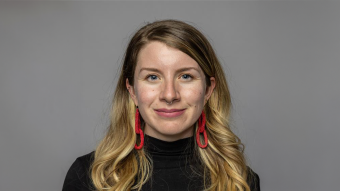April 27, 2020
Contact: Brian Consiglio, 573-882-9144, consigliob@missouri.edu
The views and opinions expressed in this “for expert comment” release are based on research and/or opinions of the researcher(s) and/or faculty member(s) and do not reflect the university’s official stance.

The COVID-19 pandemic is making existing health disparities worse in vulnerable communities throughout the U.S., said two researchers in the School of Health Professions at the University of Missouri.
Enid Schatz, professor and chair of the Department of Public Health, and Michelle Teti, associate professor in the Department of Public Health, study health disparities. They highlight four key areas to consider related to racial and ethnic health disparities during the COVID-19 pandemic.
COVID-19 disproportionally affecting communities of color
The U.S. currently lacks comprehensive race and ethnicity data on COVID-19 testing, illness and deaths. However, a recent study of 27 states indicates that the rate of COVID-19 deaths is four times higher among African Americans when compared to Caucasians. Similar findings are emerging among other groups that historically have experienced health disparities, including indigenous and native communities, undocumented immigrants and the incarcerated.
Racial, ethnic health disparities existed long before COVID-19
The underlying health conditions that can make people more susceptible to COVID-19, including heart disease, diabetes and asthma, are many of the same conditions that are already disproportionately prevalent in African American communities. However, underlying conditions only tell part of the story. Racial and ethnic health disparities in COVID-19 morbidity and mortality also derive from other social determinants of health, including income, employment and working conditions, education and literacy, childhood experiences, housing, social support, and access to health services.

COVID-19 highlights inequities throughout society
Racial inequities in major systems of society, such as our legal, education and health care systems trickle down and can affect people’s health. For example, housing discrimination may result in poor housing, crowded conditions and few opportunities to practice social distancing. Due to previous experiences of poor treatment or discrimination in health care, some people may not trust health leaders, making it less likely that they seek testing or other health services when symptoms first appear in illnesses, such as COVID-19.
Despite the complex nature of the problem, there are solutions
Viewing health disparities through a “social determinants of health” framework can help explain that people’s social positions, opportunities and surroundings influence their health more than their individual behavior choices. Continued data collection to document health disparities evident in the COVID-19 pandemic, testing onsite in vulnerable communities and informing at-risk populations of the resources available to them will help lessen the burden on the socially disadvantaged.



